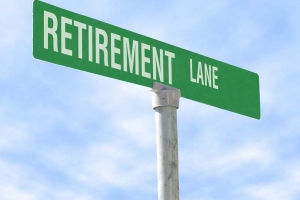Retirement System Changes

As of 2022, the New Hampshire Retirement System (NHRS) reported an unfunded liability—pension money it will owe in the future but does not currently have the assets to pay—of $5.69 billion.
Three factors have contributed to the unfunded liability:
- The 2001-2002 and 2009 fiscal crashes;
- A flawed funding methodology between 1991-2007 in which the NHRS faked low employer contribution rates;
- "Gain sharing" where roughly $900 million in investment returns went into a special account which funded non-pension benefits such as the cost-of-living adjustment.
According to the NHRS website, there is a plan in place to erase the unfunded liability by 2039.
Options for recovering the retirement system liability
Economic Recovery
First, the retirement system was designed to weather fluctuations in the economy. As the economy improves the NHRS investments could rebound, earning more money and eliminating the unfunded liability.
Higher Employee Contributions
In December 2014, the New Hampshire Supreme Court upheld the right of the state to increase public employees' contribution rates. Going forward, state employees will contribute a greater percentage of their paychecks toward their pensions.
Defined Contribution Plan
The state could switch from a defined benefit system to a defined contribution system. Under the current defined benefit plan, employees are guaranteed a yearly pension of a specific amount upon retirement. A contribution system instead establishes 401(k)-style retirement accounts for employees. Although many policymakers believe that a 401(k)-type system would be cheaper for the state than the current system, the New Hampshire Retirement System actuary estimates that switching to a 401(k)-style plan could actually cost the state $1.2 billion.
Cash-Balance Plan
The state could switch to a "cash-balance" plan, which combines individual 401(k)-style accounts and pension guarantees. Under a cash-balance plan, each year the employer contributes a set percentage of an employee's yearly pay, plus interest, to an individual account. If the employee leaves the employer before retirement age, the employee may take the cash contents of the individual account with them. If the employee stays until retirement age, the employee is guaranteed a set monthly pension payment.
Costs for Municipalities
The burden of retirement contributions on municipalities is another problem. The recession caused the New Hampshire Legislature to increase the amount local governments pay into the retirement system. To handle those increasing costs, some local governments have allowed full-time employees to retire—at which point they start receiving their pensions—then rehired those same employees part time (up to 32 hours per week). This strategy means the employer does not have to pay into the pension system anymore for that employee in a part-time position, but still benefits from having an experienced worker on hand.
Some stakeholders have called this retiring/re-hiring "gaming the system." Local governments have argued that the practice is a natural consequence of the state downshifting the burden of retirement contributions.
In 2018, the Legislature passed a law that tightened the limits on working for an employer that participates in the NHRS after you've started collecting your pension. Employees who retired after January 1, 2019 are limited to working 1,352 hours per year for employers who participate in the NHRS. That works out to 26 hours per week. Retirees who were already working part-time for NHRS employers before January 1, 2019 were grandfathered in to a 1,664 hour-per-year limit (or 32 hours per week).
This page was last edited on 2025-07-25











Comments
Login or register to post comments